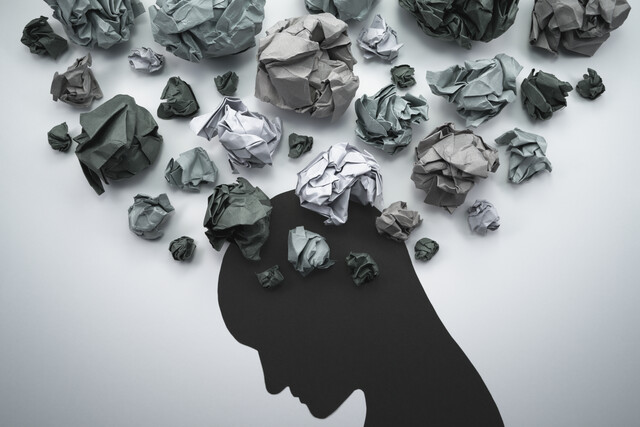Whether you are reading a book, studying for a class, or simply doing your job, concentration plays a major role in how we accomplish those tasks. In the same manner, our concentration allows us to clearly focus on the task at hand. Concentration is simply the mental process of focusing your mind on a single thought or task. In some ways, our brains are very much like computers. We receive data, process the data, somehow compute thoughts, and verbalize the information. Sometimes our concentration doesn't perform the way we expect; we may have a slower-than-normal response and we become frustrated. A person's intelligence level is tied to their ability to concentrate. There is research that suggests the level of intelligence a person has can be traced to heredity -- meaning that you may inherit the smarts of your parents. In theory, if any one person has a high level of concentration, their intelligence level would also likely be high.
The process of concentration is a very important part of what we do on a daily basis. Without the ability to concentrate, thoughts could be lost and memories wasted. Some consider concentration a way of branding our brains to recall things and assist our memory. For example, when studying for an exam, you study by concentrating; you read, focus on the key words, and to the phrases and exercises that will assist you with remembering the details. Famous intellects, such as Einstein, must have mastered this ability quite well. It is easy to assume that highly intelligent people were born with a bigger brain, or larger capacity for learning. However, it is also fair to assume that enhancing the way we think and focus can ultimately produce better concentrating skills. In essence, concentration is an ability we are able to maintain and enhance to better ourselves.
Let's discuss where this function takes place, as it obviously originates in our brain. The brain is made up of billions of nerve cells, commonly called neurons. Neurons basically gather and transmit electrochemical signals that evoke our thoughts and motor functions. The cerebral cortex is the part of the brain that is associated with our memory, thought, attention, awareness, and consciousness. This is also, where concentration comes into play. With everything we do, there is a certain amount of concentration that takes place. If you are eating ice cream, you are most likely thinking or focusing on the taste and texture -- and possibly the fact that you will have more when you are finished. When you are reading the newspaper or your favorite magazine, you are concentrating on the words and details that bring the articles to life, and finish up with a nice crossword puzzle. Just as you read the text for this class, you are stimulating your brain and putting forth an effort to concentrate.
It is interesting in an office setting how different people adapt to the surroundings of their environment in order to do their job. Some people find it very easy to concentrate with background noise, while others find it quite distracting. There are also those who prefer to be locked away silently in order to properly focus. Imagine working in an office consisting of cubicles. There is virtually no privacy, no way to drown out the noise of the day-to-day, such as co-workers' phone calls, or the busy sounds of printers, faxes, and staplers. Yet over and over we hear that people in these settings simply adapt; their minds allow them to drown out things they do not need to hear. It is as if all irrelevant background noises disappear. Haven't you ever been so deep in thought, so deep in concentration that someone speaks to you and you simply do not hear them? So, the second time they ask, you respond with a half-hearted, "Huh? I didn't even hear you." And they are just astounded that you were nearly deaf for that moment. Thousands of thoughts literally cross our minds daily, and with so much activity taking place, it is hard to imagine solidly focusing on one simple task or one thought. For many, it is difficult to concentrate on one task, let alone multitasking. Even as we are performing a physical function, the instruction to do the task is, of course, coming from the brain. If we were puppets, our brains would surely act as the puppeteer of our every move, and in reality, it pretty much seems to work that way.
Attention, focus, thought, and concentration are interrelated. Without one, it would be difficult to utilize the others. In order to concentrate, if you cannot focus, you simply would not be able to pay attention. Concentration, attention, and focus all involve thought, and therefore assist one another in the thought process.
1. Brain - the part of the central nervous system that includes all of the higher nervous centers, enclosed within the skull.
2. Concentration - exclusive attention to one object; or close mental application.
3. Focus - a central point, as of attraction, attention, or activity.
4. Cerebral cortex - The extensive outer layer of gray matter of the cerebral hemispheres, largely responsible for higher brain functions, including sensation, voluntary muscle movement, thought, reasoning, and memory.
5. Mind - the human consciousness that originates in the brain and is manifested especially in thought, perception, emotion, will, memory, and imagination.
6. Mental - involving the mind or an intellectual process.
7. Neurons - any of the impulse-conducting cells that constitute the brain.
8. Electrochemical signal - signal transmitted throughout the brain by neurons.
9. Consciousness - an alert cognitive state in which you are aware of yourself and your situation.
10. Memory - the mental capacity of retaining and reviving facts, events, impressions, etc., or of recalling and recognizing previous experiences.
11. Thought - to have a conscious mind, to some extent of reasoning, remembering experiences, making rational decisions, etc.
As children, we absorb every detail, every word, every interesting situation, and successfully retain most of this information. It is during this time that our minds gather so much information, consciously andsubconsciously. Children are often compared to sponges that literally soak up everything they see and hear in their immediate surroundings. They learn so much at a young age and carry that with them as part of the building blocks upon which they add their personality, characteristics, and habits.
It is considered part of educational success that a child is able to clearly concentrate. According to some research studies, thebrainpower of a baby develops within the womb. The brain is growing and developing during a pregnancy from the start. During this time, a baby's brain is growing fairly quickly, and is producing a high number of neurons every minute. This is believed to be part of the reason that pregnant woman become fatigued, not only because they are sharing nutrients with the baby, but brain cells, as well. This is why many pregnant women say that they are not all there mentally during a pregnancy, because their memory and concentration seem to deteriorate some days. It seems natural that a baby's brain is growing and adapting within the womb, considering when they are born they are not only accustomed to their mother's voice, but are aware of their environment and the bond that have with their mother. As they get a little older, they are also aware that crying will bring their mother to the rescue.
When children start attending school, some of their concentration and focus skills will depend on the classroom environment and whether or not they follow what others do. At a young age, many children will exhibit the "monkey see monkey do" syndrome. As they adapt to the classroom environment and the various routines that are put in place, this will become a little easier.
With older children, it is evident that listening skills and attention span are virtually nonexistent, or so it seems. In reality as children get older and become teenagers, their stress levels increase, as do their social activities, so a lack of listening and attention can be attributed to the environment around them. It is simply more difficult at this age. However, in many cases, the average student focuses and concentrates quite well in school or other controlled environments, where the chance for distractions are less prominent.
In a study conducted of 12 individuals between the ages of 20 and 60, the following items were noted. In younger adults: The activity that takes place in the dorsolateral prefrontal cortex, which is associated with certain tasks that require concentration -- such as reading or writing -- seemed to increase during the task. However, in older adults, the activity in this area seemed to decrease. This decrease is more evident in older adults that are 65-plus years. Overall, the study concluded that middle-aged adults performed tests just as accurately as younger adults, and that changes to our brain and brain functions are gradual. As these changes are gradual, we can, in turn, gradually improve our concentration skills.
In older adults, while memory loss may be evident, these commonly known characteristics are unique to each person. For example, Joe Smith and Ron Johnson are both 80 years old. However, Joe lives in his own home alone, pays his bills regularly, mows the lawn every week, reads frequently, and plays chess on a regular basis. Joe also leads a book club that he typically hosts at his home. Ron is a good friend of Joe, but lives in an assisted living retirement facility. Ron does not have to do yard work or keep up with his apartment home; in his spare time, he chats with friends, walks with the help of a cane, and goes to therapy regularly for his recent hip replacement. There are so many factors that affect the way in which we age, and that, in some respects, will have an effect on the way our minds age. Perhaps Joe was a very healthy eater and exercised regularly, or he simply inherited great genes. Ron may have been very healthy as well, but perhaps wasn't as active, physically and mentally. Research suggests that within the age group from 15 to 30 years, there are common stereotypical traits that describe older Americans among this group.
-
Hard of hearing
-
Use of a hearing aid device
-
Lack of memory
-
Walking with the use of a cane or walker
-
In a wheelchair
-
Lack of concentration
-
Poor communication

























